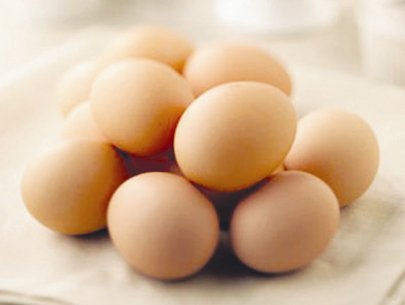
Eggs are a nutritious and familiar food for daily meals of almost all peoples around the world. Following are common contents of nutrients, vitamins and minerals of chicken, duck and quail eggs, which are considered the most popular food for human beings.
 |
Tips on the nutrients of chicken, duck and quail eggs
Eggs are a nutritious and familiar food for daily meals of almost all peoples around the world. Following are common contents of nutrients, vitamins and minerals of chicken, duck and quail eggs, which are considered the most popular food for human beings.
Chicken eggs
Chicken eggs are the most popular poultry eggs that are widely consumed all over the world. The nutritious eggs can supply the body with minerals such as calcium, iron, magnesium, phosphorus, potassium, selenium, sulfur and zinc, and vitamins A, B1, B2, B5, B6, B12, D and E.
Intake of a chicken egg supplies the body with 14% of the protein necessary for a day. A medium-sized chicken egg contains up to 65 calories in the forms of proteins and triglycerides. It also has eight kinds of amino acids that are essential for human health.
Duck eggs
A duck egg contains some 130 calories, double that of a chicken egg, as the former’s size is usually much bigger than the latter’s. Aside from the minerals and vitamins like those in a chicken egg, the duck egg supplies higher amounts of proteins and triglycerides.
The carbohydrate content of a chicken egg and a duck egg is almost the same, but the concentration of saturated and unsaturated fats of a duck egg is higher than that of a chicken egg. Duck eggs have more amino acids than those of chicken eggs.
One hundred grams of duck eggs supply some 185 calories for the body; the corresponding figure is 149 calories for 100 grams of chicken eggs. Similarly, 100 grams of duck eggs contain 884mg of cholesterol, whereas 100 grams of chicken eggs have 425mg of cholesterol. This is why duck eggs are not recommended for those with cardiovascular diseases.
Quail eggs
Although much smaller than its counterparts, a quail egg has 14 calories, 1.2g of protein and 1g of fats. It also has the same amino acids, minerals and vitamins like those found in chicken and duck eggs.
In comparison with chicken eggs, the risk of allergy of quail eggs is much lower, thus they are often recommended for children of six years old and younger. Quail eggs are very good for the brain development of young children.
However, old people and those with high blood pressure, high cholesterol level in the blood, or cardiovascular diseases, should not eat quail eggs because they are very rich in cholesterol.
Do not eat any kind of these eggs when you have got a fever, indigestion or diarrhea. Do not blend soymilk with (chicken) eggs, as the combination of albumin in egg white and the trypsin in soymilk may decrease the nutrition value of the drink and may cause indigestion. Chicken, duck or quail eggs should be cooked, boiled or fried well before consumption.
(Source: SGT)



